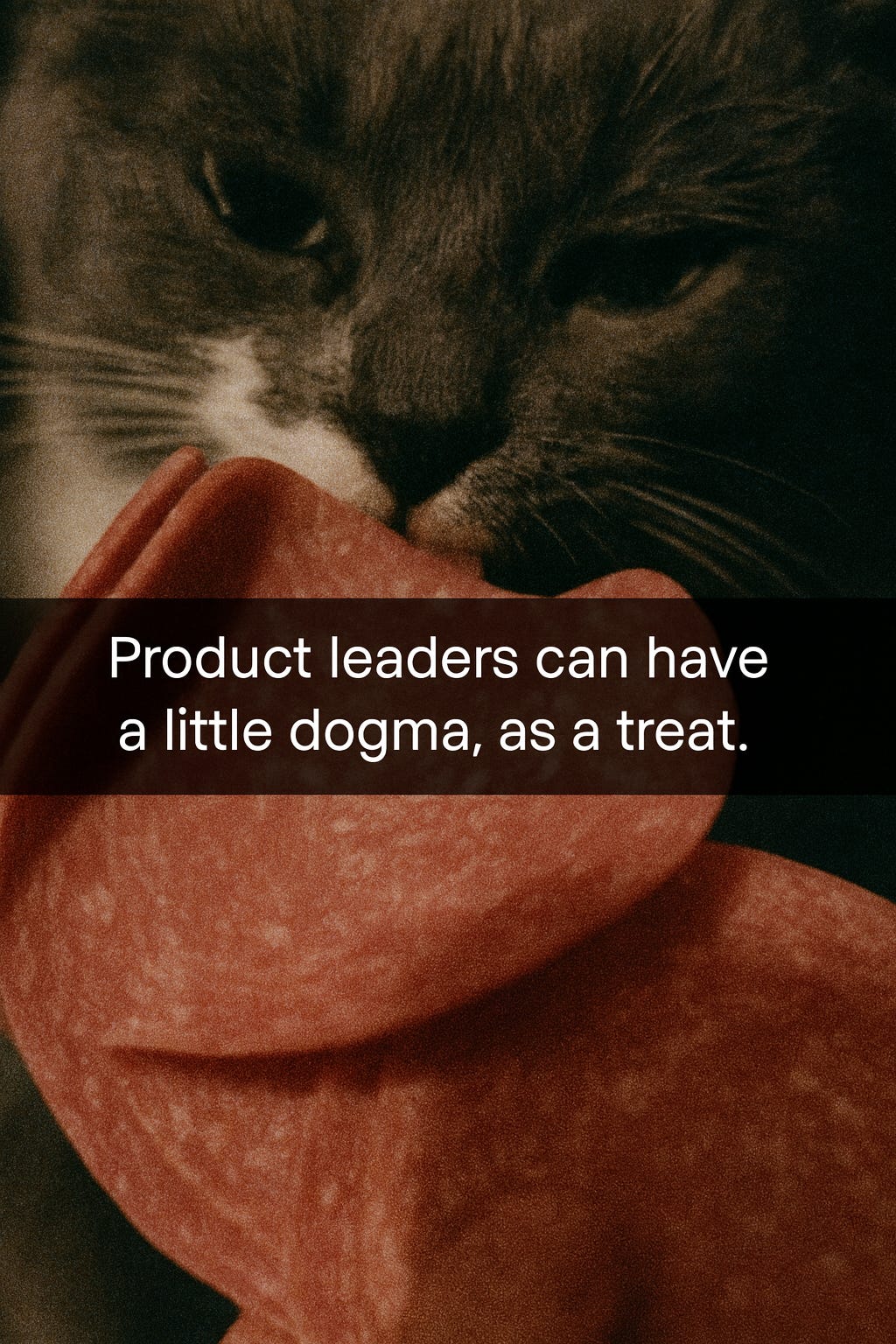Product Leaders can have a little Dogma... right?
Actually... no.
I’ve been thinking a lot lately about what happens when leaders get too precious about how work gets done instead of focusing on whether it actually moves the needle.
And as a former dogmaholic, I’ve come to the conclusion that it’s never helpful.
I remember joining a fairly traditional B2B SaaS company working on NLP way before AI was cool, bright eyed a…




